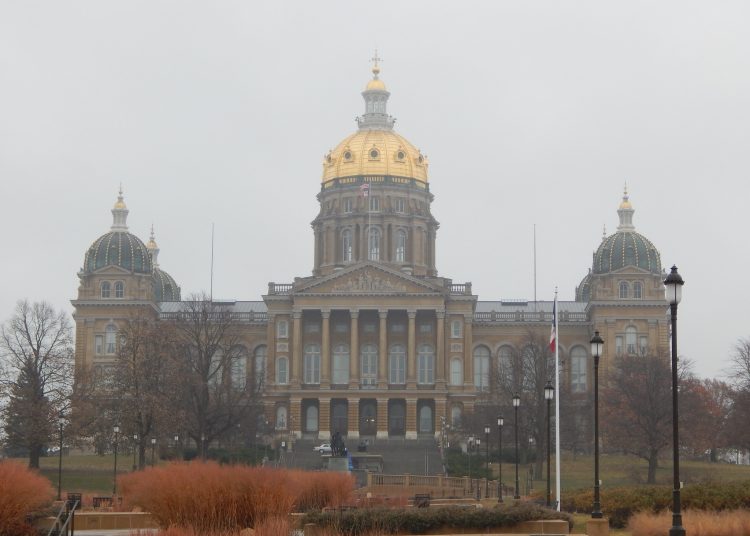(The Center Square) DES MOINES, Iowa – Properties valued above $150,000 that currently receive Iowa business property tax credits or are former telecom properties may experience increased property taxes through fiscal year 2030.
The Iowa Legislature passed a bill, HF 2552, that would change business property tax credits to an exemption and alter the state’s reimbursements to local governments, sending it to Gov. Kim Reynolds desk. The Iowa Senate passed the bill by a 31 to 18 party line vote on Tuesday. The Iowa House of Representatives passed a bill on Thursday in a 60-34 vote. State Reps. Eric Gjerde, D-Cedar Rapids, Charles Isenhart, D-Dubuque, Bob Kressig, D-Cedar Falls, and Amy Nielsen, D-North Liberty joined Iowa House Republicans voting for the bill.
The bill replaces an existing $125 million standing general fund appropriation that finances the tax credits with a standing general fund appropriation of up to $125 million that can be used to reimburse local governments for the tax reductions, the fiscal note on the bill said. The full $125 million won’t be needed through fiscal year 2029 since property tax credits for the properties (above $150,000 assessment) are supposed to be larger than the property tax decreases that will benefit from the next exemption and didn’t benefit from the business property tax credits, the note said.
State Rep. Carter Nordman, R-Adel, told The Center Square in a statement Tuesday that the bill is an Iowa Department of Revenue proposal that is meant to make the department more efficient and effective for Iowa taxpayers.
An amendment to push out the application of the assessment to years beginning in 2030 failed in a 39-55 vote.
State Rep. Cindy Winckler, D-Davenport, said she’s concerned the state won’t keep its promises to the cities regarding property tax relief. Not funding the $125 million every year would negatively impact cities, she said.
Owners of commercial, industrial or railroad properties that do not currently receive the tax credits would see property tax reductions. Taxpayers with properties assessed at no more than $150,000 will retain their current benefits. The state’s $125 million standing general fund appropriation for local government reimbursement exceeds the projected level of claims for fiscal year 2024 through fiscal year 2029. Local government reimbursement claims would begin being prorated in fiscal year 2030.
Currently, real property that is commercial, industrial or railroad can receive a tax credit for an initial portion of property value. A portion of each business property’s value is taxed like residential property is. Above the minimum, property taxpayers pay 90.0% of the property’s taxable value.
The state pays $125 million annually for the property tax credit. For fiscal year 2022, 79,822 properties benefited from the tax credit, which was applied to the first $234,663 in property value. About 10.6% ($6 billion) of Iowa’s assessed property values did not benefit from the tax credits.
Iowa’s two-year assessment cycles prompt a residential rollback that varies between odd- and even-numbered assessment years, with a $125.0 million tax credit appropriation covering more initial value in even-numbered years. In recent years, this trend has caused the initial value to drop about $16,000 every two years, the fiscal note said.
The bill also increases the types of debt the Iowa Department of Revenue can try to collect through reciprocal agreements with other states, reduces the inheritance tax owed by unknown heirs (following SF 619 of 2021) and adds $76,000 for Property Assessment Appeals Board state employee pay.
Shane Vander Hart contributed to this report.















